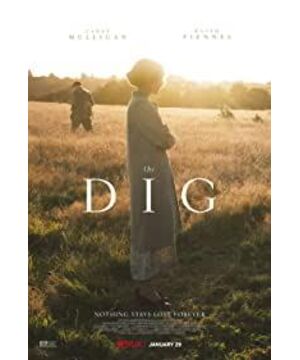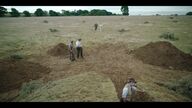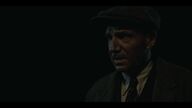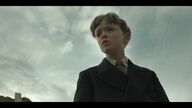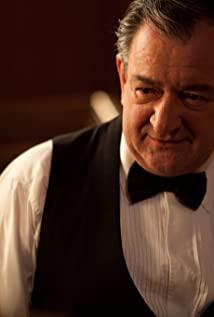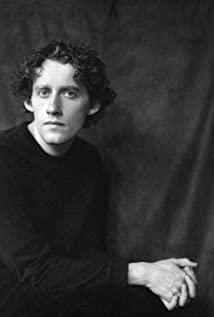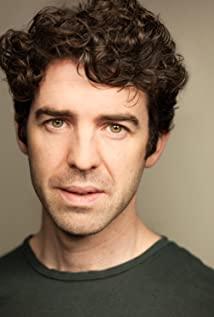Archaeology is about the future.
—————————
From the tomb of Tutankhamun to the Terracotta Warriors and Horses of the First Emperor of Qin, the discoveries of archaeologists have refreshed our cognition again and again, which also makes people have more romantic imaginations about archaeology. Yet archaeologists' own stories are often overshadowed by the legends they uncover.
So, people's minds opened up. In the web series, the "archaeologists" go deep underground one after another, conducting Indiana Jones-esque adventures in the intricate underground palaces and labyrinths. The enjoyment of watching can't avoid the question marks on the face after watching: there are too many bugs, right?
How do real archaeologists work? A recent hotly debated British film has taught us a good lesson.
The Dig is set in the countryside of Suffolk, eastern England, on the eve of World War II. The wealthy manor hostess Edith Preti has been an archaeology enthusiast since childhood, but she has no professional training. There is an ancient tomb of unknown age on the land of the manor. It is said that King Henry VIII of England excavated here for more than 400 years, and nothing was recorded.
So Edith found Bashir Brown. Bashir is also not an archaeologist, and only dares to call himself an "excavator", but he has quite a wealth of field work experience. After a simple trial excavation, he felt that the age of this tomb was much older than originally imagined. So he defied all opposition and, with the firm support of Edith, finally discovered the Anglo-Saxon Sutton Hoo boat tomb in the seventh century AD - also known as the "British Tomb of Tutankhamun" ". After that, professional archaeologists from the British Museum stepped in and rescued the "Sutton Hoo Treasure" that shocked the world before the war spread.
Compared with the "archaeology" movies of the treasure hunt, "Excavation" may seem too bland. Against the backdrop of exquisite photography, there is no intense dramatic conflict in the whole film, and there is not even an absolute protagonist. However, its realism of archaeology is extremely rare in non-documentary film and television works.
Site exploration, rescue excavation, laboratory archaeology, public archaeology, and protection of unearthed cultural relics combined with the analysis of literature legends and geographical features... Surprisingly, many of the high-frequency words that are often heard in Chinese archaeological news these days are in this section. It is vividly reflected in the film about British archaeologists. Regardless of the background of the times, this is almost a rigorous science of archaeological standard procedures and advanced concepts.
Under the clouds of war, a national treasure rescue operation is staged in the English countryside. Afterwards, the Sutton Hoo treasure escaped the intrusion of the British air battle in the London Underground, and was fully displayed to the world after Edith's death. Does this remind us of the historical hero who made great efforts to escort the cultural relics of the Forbidden City to the south? And when the well-preserved ancient ship emerged from the soil, is there a bit of a famous ship of the Southern Song Dynasty in China, "Nanhai No. 1" being cleaned from the sand. How does it come out? Peggy, a female archaeologist in the film, was recruited into the excavation team simply because she was light enough to not crush the wood on the ship. In contrast, is the value of female archaeologists still undervalued in this male-dominated circle today? A distant story resonates across time and space at certain moments.
It is often said that archaeology is different from treasure hunting. The value revealed by archaeology is far more precious than the treasure in the secular sense. Whether it is a first-line actor like Ralph Fiennes or Carey Mulligan, in this film can only give way to the real protagonist - the treasure of Sutton Hu. Unearthed masks, gold and silver, Byzantine seals and other dazzling artifacts make this one of the most important archaeological finds in the UK. However, it is not because of these stunning appearances that they are valued as "national treasures". As the archaeologists in the film say, their discoveries brought culture to the Anglo-Saxon period once defined as the barbaric age. The dynastic epics depicted in Beowulf, Britain's earliest surviving literary work, are no longer a tree without roots.
In the film, when Bashir encounters difficulties in excavation, his wife has this line:
Your always told me your work isn't about the past or even the present. It's for the future, so that the next generations can know where they came from. The line that joins them to their forebears. ("You always told me Say, your work isn’t about the past, or even the present. It’s about the future. It’s what future generations can use to know where they came from. It’s the link between future generations and ancestors.”)
This may be the highest praise for archaeologists. As soon as they know autumn, standing at an inconspicuous time node, they can see the ins and outs of the long river, and the buried past is the wealth of tomorrow.
This year marks the 100th anniversary of the birth of Chinese archaeology. On the land of China today, nearly a thousand new archaeological excavations are carried out every year. The footprints of Chinese archaeologists have set foot on the land of more than 20 countries. However, the origins of all these achievements are those painted pottery 5000-7000 years ago found in Yangshao Village, Henan Province a century ago. Since then, the profound history of China has been marked with annotations such as Yinxu and Erlitou, and more glorious eras such as Liangzhu and Sanxingdui that have never been recorded in historical records have appeared one after another.
In the past hundred years, China has witnessed how many "Sutton Hu treasures" of its own. Generations of archaeologists have revealed the beginnings of civilization from underground. Do we also owe them a movie like The Excavation? We are accustomed to marvel at the greatness of our ancestors in museums, but don't forget who are the heroes behind the "hand shoveling of heavenly books".
The original text was published in China Youth Daily on March 16, 2021
View more about The Dig reviews


